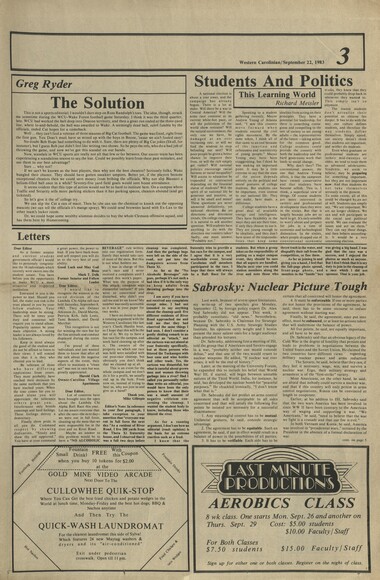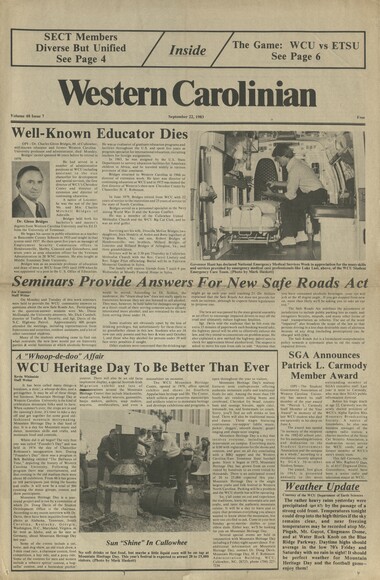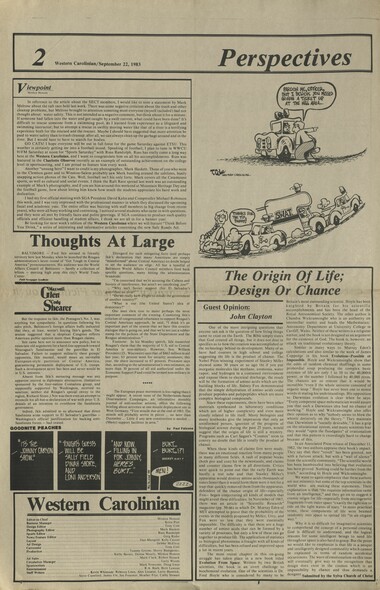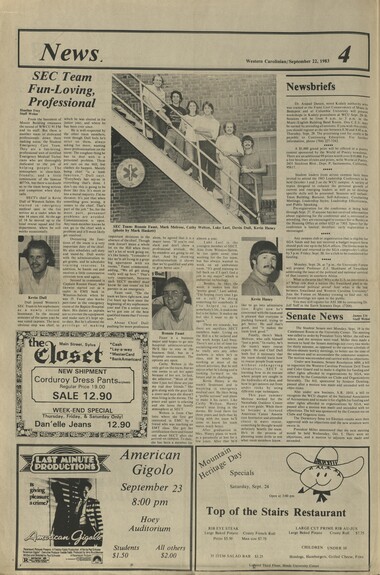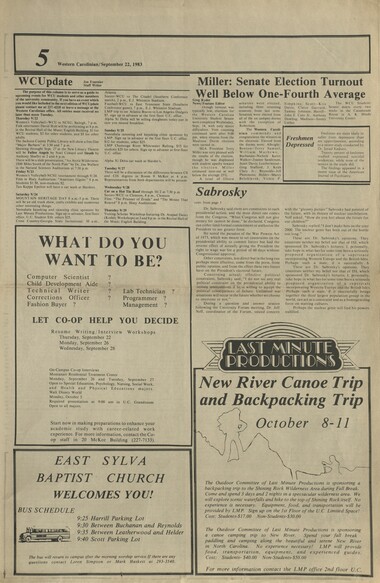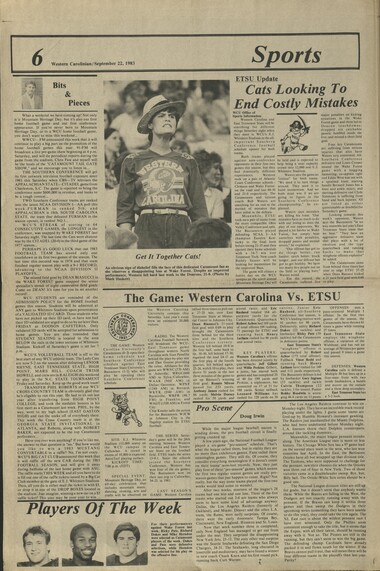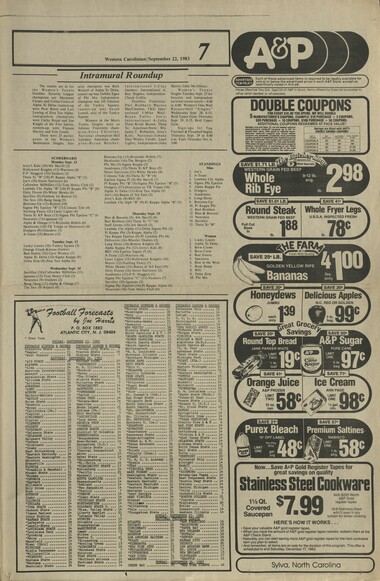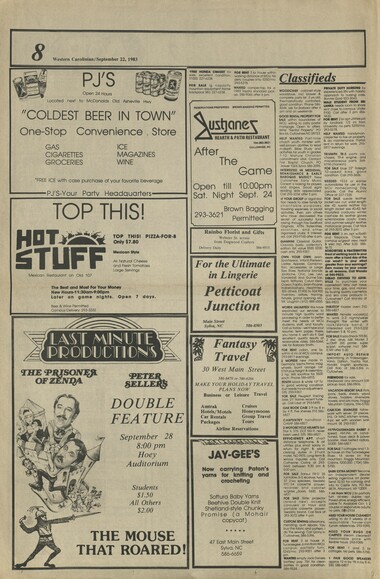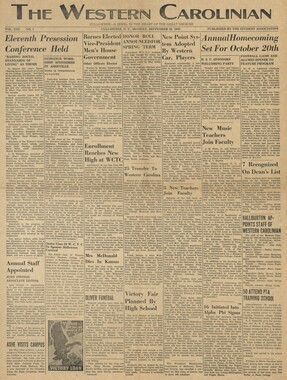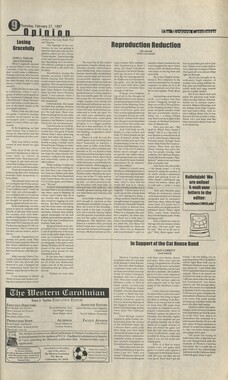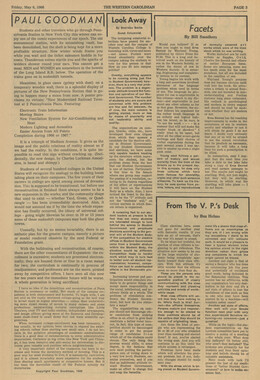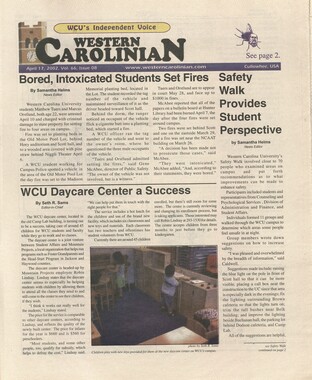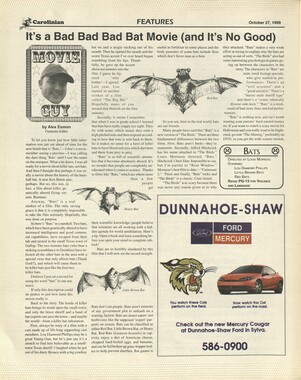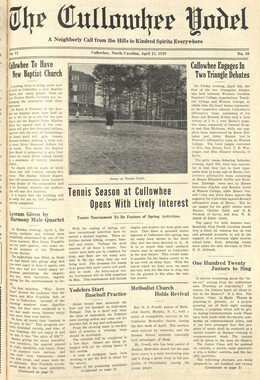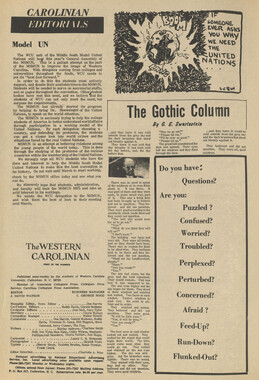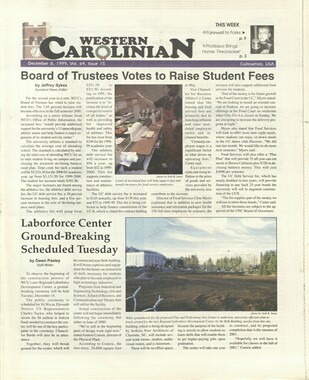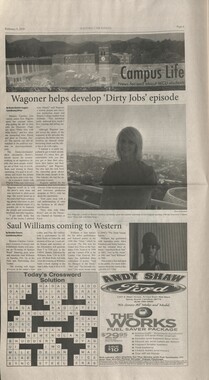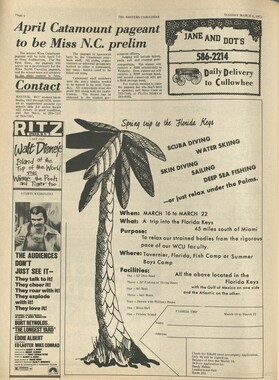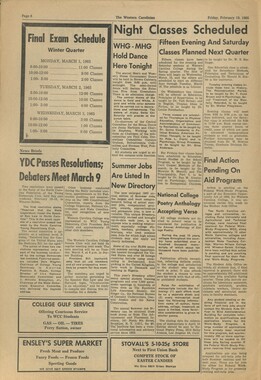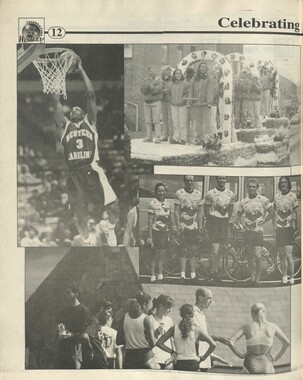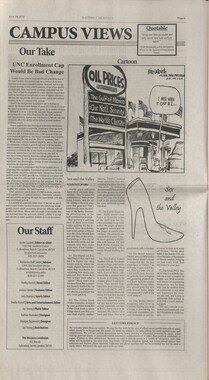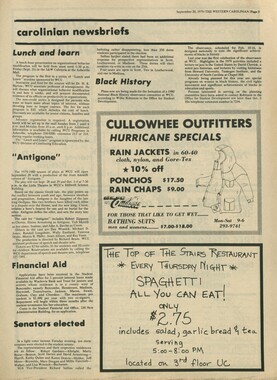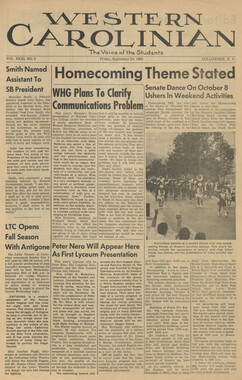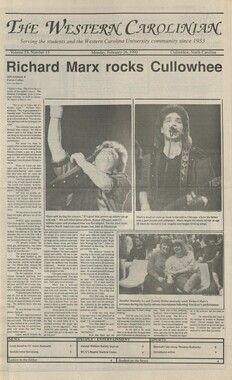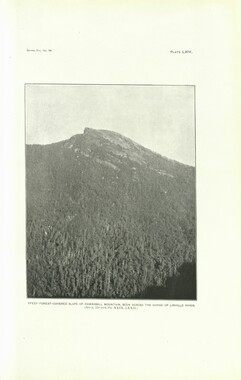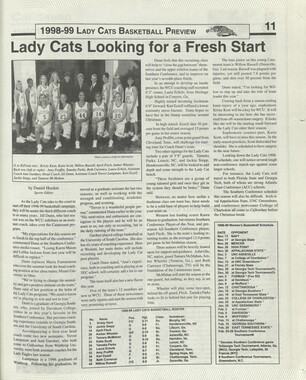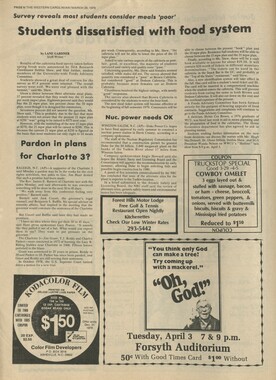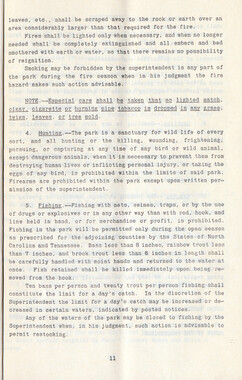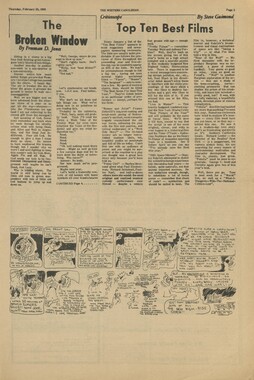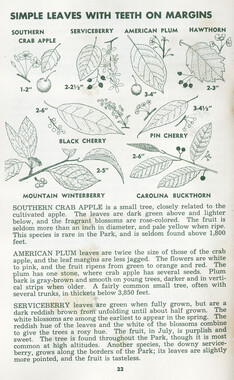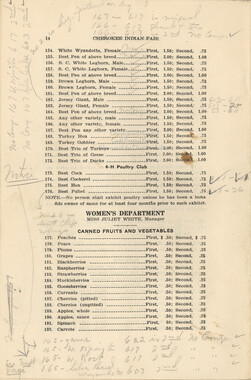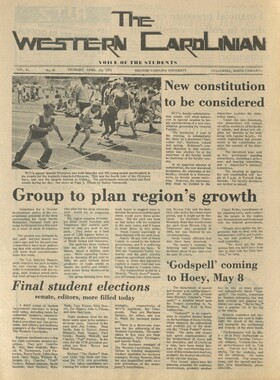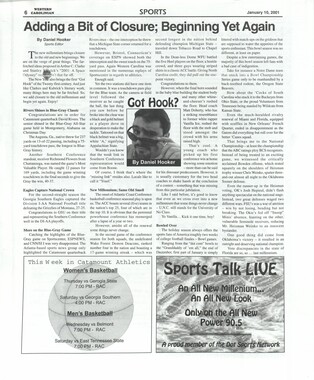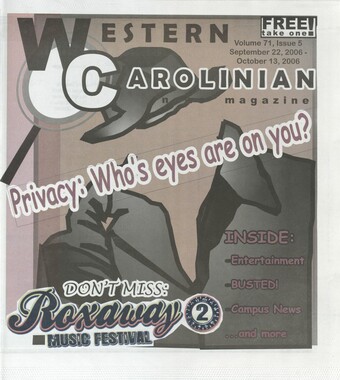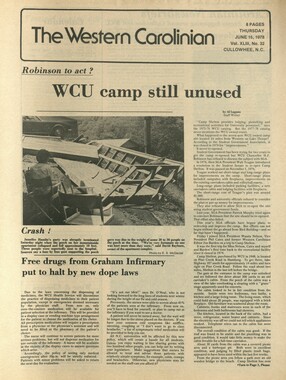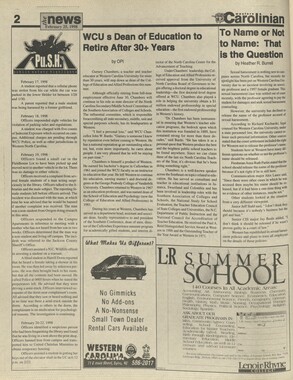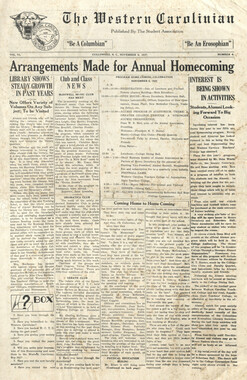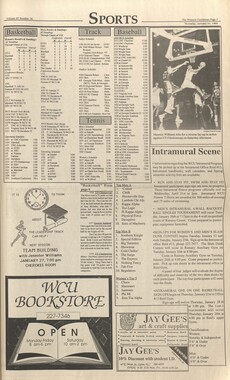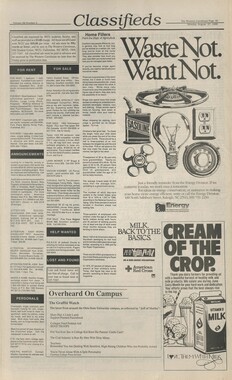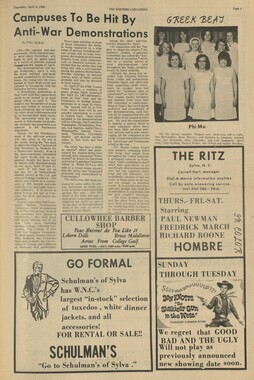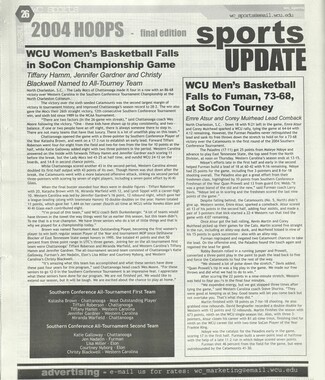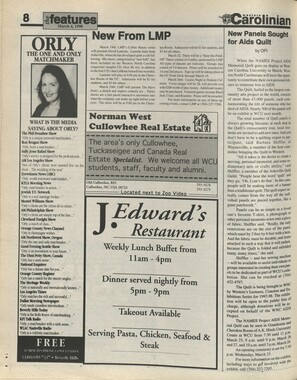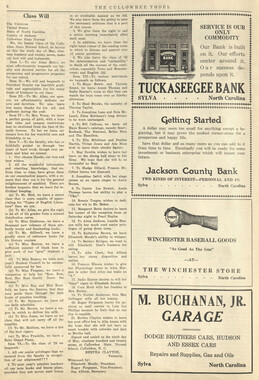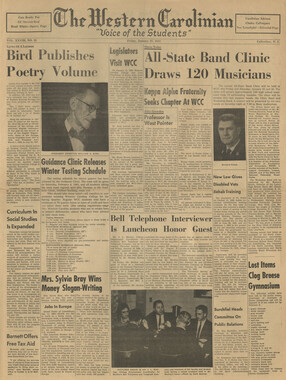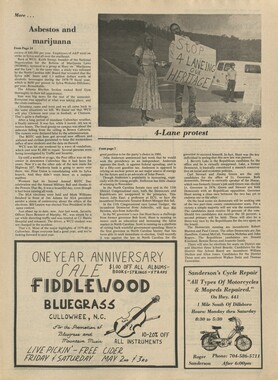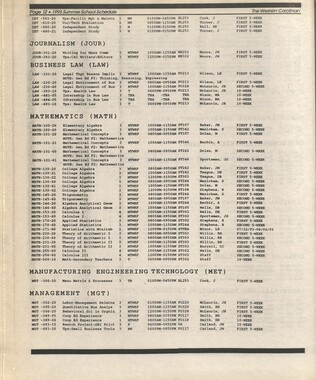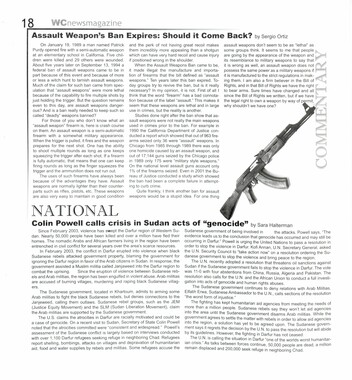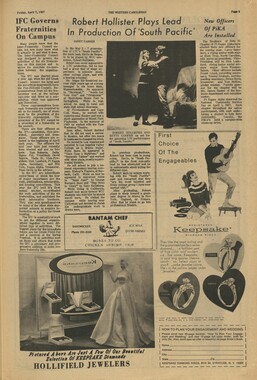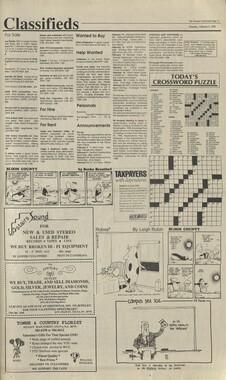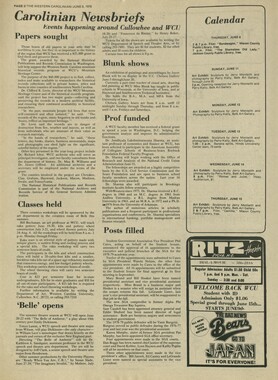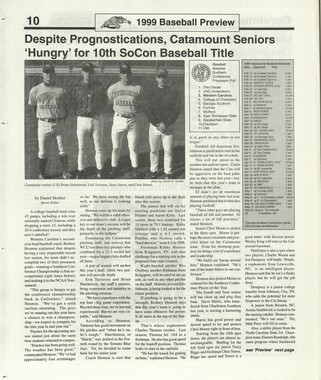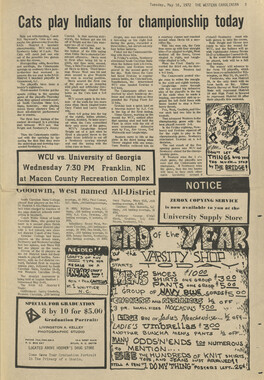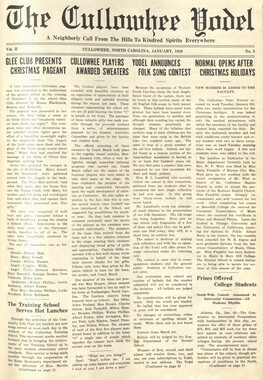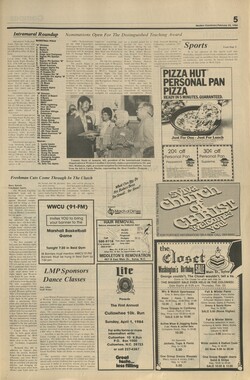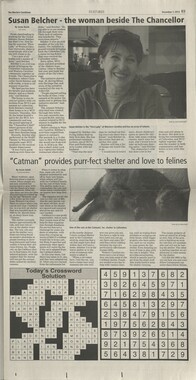Western Carolina University (21)
View all
- Canton Champion Fibre Company (2308)
- Cherokee Traditions (291)
- Civil War in Southern Appalachia (165)
- Craft Revival (1942)
- George Masa Collection (135)
- Great Smoky Mountains - A Park for America (2901)
- Highlights from Western Carolina University (422)
- Horace Kephart (941)
- Journeys Through Jackson (159)
- LGBTQIA+ Archive of Jackson County (85)
- Oral Histories of Western North Carolina (314)
- Picturing Appalachia (6798)
- Stories of Mountain Folk (413)
- Travel Western North Carolina (153)
- Western Carolina University Fine Art Museum Vitreograph Collection (129)
- Western Carolina University Herbarium (92)
- Western Carolina University: Making Memories (738)
- Western Carolina University Publications (2491)
- Western Carolina University Restricted Electronic Theses and Dissertations (146)
- Western North Carolina Regional Maps (71)
- World War II in Southern Appalachia (131)
University of North Carolina Asheville (6)
View all
- Allanstand Cottage Industries (62)
- Appalachian National Park Association (53)
- Bennett, Kelly, 1890-1974 (1463)
- Berry, Walter (76)
- Brasstown Carvers (40)
- Carver, George Washington, 1864?-1943 (26)
- Cathey, Joseph, 1803-1874 (1)
- Champion Fibre Company (233)
- Champion Paper and Fibre Company (297)
- Cherokee Indian Fair Association (16)
- Cherokee Language Program (22)
- Crowe, Amanda (40)
- Edmonston, Thomas Benton, 1842-1907 (7)
- Ensley, A. L. (Abraham Lincoln), 1865-1948 (275)
- Fromer, Irving Rhodes, 1913-1994 (70)
- George Butz (BFS 1907) (46)
- Goodrich, Frances Louisa (120)
- Grant, George Alexander, 1891-1964 (96)
- Heard, Marian Gladys (60)
- Kephart, Calvin, 1883-1969 (15)
- Kephart, Horace, 1862-1931 (313)
- Kephart, Laura, 1862-1954 (39)
- Laney, Gideon Thomas, 1889-1976 (439)
- Masa, George, 1881-1933 (61)
- McElhinney, William Julian, 1896-1953 (44)
- Niggli, Josephina, 1910-1983 (10)
- North Carolina Park Commission (105)
- Osborne, Kezia Stradley (9)
- Owens, Samuel Robert, 1918-1995 (11)
- Penland Weavers and Potters (36)
- Roberts, Vivienne (15)
- Roth, Albert, 1890-1974 (142)
- Schenck, Carl Alwin, 1868-1955 (1)
- Sherrill's Photography Studio (2565)
- Southern Highland Handicraft Guild (127)
- Southern Highlanders, Inc. (71)
- Stalcup, Jesse Bryson (46)
- Stearns, I. K. (213)
- Thompson, James Edward, 1880-1976 (226)
- United States. Indian Arts and Crafts Board (130)
- USFS (683)
- Vance, Zebulon Baird, 1830-1894 (1)
- Weaver, Zebulon, 1872-1948 (58)
- Western Carolina College (230)
- Western Carolina Teachers College (282)
- Western Carolina University (2008)
- Western Carolina University. Mountain Heritage Center (18)
- Whitman, Walt, 1819-1892 (10)
- Wilburn, Hiram Coleman, 1880-1967 (73)
- Williams, Isadora (3)
- Cain, Doreyl Ammons (0)
- Crittenden, Lorraine (0)
- Rhodes, Judy (0)
- Smith, Edward Clark (0)
- Appalachian Region, Southern (2924)
- Asheville (N.C.) (1941)
- Avery County (N.C.) (26)
- Blount County (Tenn.) (195)
- Buncombe County (N.C.) (1672)
- Cherokee County (N.C.) (283)
- Clay County (N.C.) (556)
- Graham County (N.C.) (236)
- Great Smoky Mountains National Park (N.C. and Tenn.) (525)
- Haywood County (N.C.) (3569)
- Henderson County (N.C.) (70)
- Jackson County (N.C.) (4913)
- Knox County (Tenn.) (35)
- Knoxville (Tenn.) (13)
- Lake Santeetlah (N.C.) (10)
- Macon County (N.C.) (420)
- Madison County (N.C.) (215)
- McDowell County (N.C.) (39)
- Mitchell County (N.C.) (135)
- Polk County (N.C.) (35)
- Qualla Boundary (982)
- Rutherford County (N.C.) (76)
- Swain County (N.C.) (2182)
- Transylvania County (N.C.) (270)
- Watauga County (N.C.) (12)
- Waynesville (N.C.) (86)
- Yancey County (N.C.) (72)
- Aerial Photographs (3)
- Aerial Views (60)
- Albums (books) (4)
- Articles (1)
- Artifacts (object Genre) (228)
- Bibliographies (1)
- Biography (general Genre) (2)
- Cards (information Artifacts) (38)
- Clippings (information Artifacts) (191)
- Copybooks (instructional Materials) (3)
- Crafts (art Genres) (622)
- Depictions (visual Works) (21)
- Design Drawings (1)
- Drawings (visual Works) (185)
- Envelopes (73)
- Exhibitions (events) (1)
- Facsimiles (reproductions) (1)
- Fiction (general Genre) (4)
- Financial Records (12)
- Fliers (printed Matter) (67)
- Glass Plate Negatives (381)
- Guidebooks (2)
- Internegatives (10)
- Interviews (815)
- Land Surveys (102)
- Letters (correspondence) (1013)
- Manuscripts (documents) (618)
- Maps (documents) (177)
- Memorandums (25)
- Minutes (administrative Records) (59)
- Negatives (photographs) (6090)
- Newsletters (1290)
- Newspapers (2)
- Notebooks (8)
- Occupation Currency (1)
- Paintings (visual Works) (1)
- Pen And Ink Drawings (1)
- Periodicals (193)
- Personal Narratives (10)
- Photographs (12976)
- Plans (maps) (1)
- Poetry (5)
- Portraits (4568)
- Postcards (329)
- Programs (documents) (181)
- Publications (documents) (2443)
- Questionnaires (65)
- Relief Prints (26)
- Sayings (literary Genre) (1)
- Scrapbooks (282)
- Sheet Music (2)
- Slides (photographs) (402)
- Songs (musical Compositions) (2)
- Sound Recordings (796)
- Specimens (92)
- Speeches (documents) (18)
- Tintypes (photographs) (8)
- Transcripts (322)
- Video Recordings (physical Artifacts) (23)
- Text Messages (0)
- A.L. Ensley Collection (275)
- Appalachian Industrial School Records (7)
- Appalachian National Park Association Records (336)
- Axley-Meroney Collection (2)
- Bayard Wootten Photograph Collection (20)
- Bethel Rural Community Organization Collection (7)
- Blumer Collection (5)
- C.W. Slagle Collection (20)
- Canton Area Historical Museum (2110)
- Carlos C. Campbell Collection (462)
- Cataloochee History Project (64)
- Cherokee Studies Collection (4)
- Daisy Dame Photograph Album (5)
- Daniel Boone VI Collection (1)
- Doris Ulmann Photograph Collection (112)
- Elizabeth H. Lasley Collection (1)
- Elizabeth Woolworth Szold Fleharty Collection (4)
- Frank Fry Collection (95)
- George Masa Collection (173)
- Gideon Laney Collection (452)
- Hazel Scarborough Collection (2)
- Hiram C. Wilburn Papers (28)
- Historic Photographs Collection (236)
- Horace Kephart Collection (861)
- Humbard Collection (33)
- Hunter and Weaver Families Collection (1)
- I. D. Blumenthal Collection (4)
- Isadora Williams Collection (4)
- Jesse Bryson Stalcup Collection (47)
- Jim Thompson Collection (224)
- John B. Battle Collection (7)
- John C. Campbell Folk School Records (80)
- John Parris Collection (6)
- Judaculla Rock project (2)
- Kelly Bennett Collection (1482)
- Love Family Papers (11)
- Major Wiley Parris Civil War Letters (3)
- Map Collection (12)
- McFee-Misemer Civil War Letters (34)
- Mountain Heritage Center Collection (4)
- Norburn - Robertson - Thomson Families Collection (44)
- Pauline Hood Collection (7)
- Pre-Guild Collection (2)
- Qualla Arts and Crafts Mutual Collection (12)
- R.A. Romanes Collection (681)
- Rosser H. Taylor Collection (1)
- Samuel Robert Owens Collection (94)
- Sara Madison Collection (144)
- Sherrill Studio Photo Collection (2558)
- Smoky Mountains Hiking Club Collection (616)
- Stories of Mountain Folk - Radio Programs (374)
- The Reporter, Western Carolina University (510)
- Venoy and Elizabeth Reed Collection (16)
- WCU Gender and Sexuality Oral History Project (32)
- WCU Mountain Heritage Center Oral Histories (25)
- WCU Oral History Collection - Mountain People, Mountain Lives (71)
- WCU Students Newspapers Collection (1923)
- Western North Carolina Tomorrow Black Oral History Project (69)
- William Williams Stringfield Collection (2)
- Zebulon Weaver Collection (109)
- African Americans (390)
- Appalachian Trail (35)
- Artisans (521)
- Cherokee art (84)
- Cherokee artists -- North Carolina (10)
- Cherokee language (21)
- Cherokee pottery (101)
- Cherokee women (208)
- Church buildings (190)
- Civilian Conservation Corps (U.S.) (111)
- College student newspapers and periodicals (2012)
- Dams (107)
- Dance (1023)
- Education (222)
- Floods (61)
- Folk music (1015)
- Forced removal, 1813-1903 (2)
- Forest conservation (220)
- Forests and forestry (1196)
- Gender nonconformity (4)
- Great Smoky Mountains National Park (N.C. and Tenn.) (181)
- Hunting (45)
- Landscape photography (25)
- Logging (119)
- Maps (83)
- Mines and mineral resources (8)
- North Carolina -- Maps (18)
- Paper industry (38)
- Postcards (255)
- Pottery (135)
- Railroad trains (72)
- Rural electrification -- North Carolina, Western (3)
- School integration -- Southern States (2)
- Segregation -- North Carolina, Western (5)
- Slavery (5)
- Sports (452)
- Storytelling (243)
- Waterfalls -- Great Smoky Mountains (N.C. and Tenn.) (66)
- Weaving -- Appalachian Region, Southern (280)
- Wood-carving -- Appalachian Region, Southern (328)
- World War, 1939-1945 (173)
Western Carolinian Volume 48 Number 07 (08)
Item
Item’s are ‘child’ level descriptions to ‘parent’ objects, (e.g. one page of a whole book).
-
-
The Solution This is not a sports editorial; 1 wouldn't dare step on Russ Randolph's toes. The idea, though, struck me sometime during the WCU-Wake Forest football game Saturday. I think it was the third quarter, late. WCU had worked the ball deep into Deacon territory, and then a great run ended at the three-yard line, where lo-and-behold, the ball was awarded to Wake. A seemingly dead ball, ruled fumble by the officials, ended Cat hopes for a comeback. Well... they can't fool a veteran of three seasons of Big Cat football. The game was fixed, right from the first gun. You Deac's must have us mixed up with the boys in Boone, 'cause we ain't fooled easy! No doubt Bob Hope had something to do with it. Sure, there are plenty of Big Cat jokes (Skull, for instance), but I guess Bob just didn't feel like writing two shows. So he pays the refs, who do a bad job of throwing the game, and now weVe got this scandal on our hands. Now, scandals in WCU sports are really not all that few or far between. Our soccer team has been experiencing a scandalous season to say. the leat. Could we possibly learn from these past mistakes, and use them to our best advantage? Sure ... why not? If we can't be known as the best players, then why not the best cheaters? Seriously folks, Wake bungled their chance. They should have gotten sneakier umpires. Better yet, if the players became exceptional cheaters then we could save money from bribing the officials. Why not slip Biasucci a helium-filled ball once in a while? Seventy-five yard field goals would sure boost attendance. It seems evident that this type of action would not be so hard to institute here. On a campus where Traffic and Security sells more parking stickers than it has parking spaces, cheaters abound (and get ticketed). So let's give it the of college try. We can slip the Cat a can of mace. Then he/she can use the chemical to knock out the opposing mascots (we can tell the officials it's mange spray). We could send brownies laced with Ex-Lax to the other team's locker room. Or, we could hope some wealthy alumnus decides to buy the whole Clemson offensive squad, and has them here by Homecoming. Students And Politics Letters A national election is about a year away, and the campaign has already begun. There is a lot at stake. Will there be a war in Central America? Will the arms race continue at its current white-hot pace, or will the politicians of the world show restraint? Will the natural environment, the only one we have, be damaged at an ever increasing rate, or will we find the wisdom to stop befouling our nest? Will poor people be given a better chance to improve their lives, or will the rich simply get richer? Will national policies encourage racial fairness or racial inequality? Will access to education be expanded or contracted depending on the financial status of students? Will the spirit of ur national life be generous and positive, or will it be small and mean? These questions are never answered definitively, yet national elections do set directions and determine trends. On college campuses it is natural to ask another question: Will students have anything to do with the direction our country takes? Sadly, one must answer, "Probably not." This Learning World Richard Meisler Speaking to a student gathering recently. Mayor Andrew Young of Atlanta said, "I saw this country move forward when students entered the civil rights movement. By the same token, 1 think all of that came to an end because of the inaction and callousness and insensitivity of young people." Mayor Young may have been exaggerating, but 1 think he was making an important point, lt may be a little extreme to say that the state of the union depends entirely on the political and moral postures of college students. But students can be important, even central to our national life. They can make, have made, a difference. College students have a great deal of available energy and intelligence. They have flexibility in the ways they can use their time, if only they choose to use it. They are young enough to be idealistic, and they don't have some of the responsibi- lities that keep some idealists from acting on their principles. They have a potential for leadership, for there is something contagious and compelling to the rest of society to see young adults — the representatives of the future — taking action for the common good. College students could provide the country with both the leadership and the hard grass-roots work that leads to social change. Why don't they? The conventional answer, the one that Andrew Young offers, is that the campuses have turned conservative and that students have become selfish. This is, I think, a superficial view of things. Of course students are more interested in careers and professional development than they were in the sixties. But that is largely because jobs are so hard to get. It's only sensible to worry about and prepare for jobs in a time of economic and technological dislocation. In the sixties, when people dropped out of conventional economic trucks, they knew that they could probably drop back in whenever they wanted to. This simply isn't so anymore. The reason students don't actualize their potential as citizens lies deeper. It has to do with the way our culture defines students, and therefore the way students define themselves. Simply stated, our society doesn't think that students are important, and neither do students. Even when graduate or professional students are intheir mid-twenties or older, we tend to treat them as advanced adolexcents. Students, we seem to believe, may be preparing for something important, but they are not important now. And thus students do not take themselves seriously in the present. To some extent, all of this could be changed by an act of will. Students can simply say, "We are important. We are no longer children. We can and will participate in the social and political world. We can evaluate the issues and act on them." They can say these things, and then behave accordingly, lt would be a very interesting election. Dear Editor As a former senator and current student government official I would like to personaly congratulate the 16 individuals which recently were sworn into the student senate. You have before you the opportunity to make WCU a more atractive and respected institution. Entrusted in you is the power to lead. Should you fail, the stake you risk is the trust placed in you by your fellow students. Your leadership must be strong. There will be times your duty and consiense will require you to stand allone. Popularity cannot be your main objective. A strong leader is not always loved by his followers. Keep in mind always the good of the student and do not be affraid to listen to their views. I will remind you that it is they who ellected you to lead. Be tollerant of those who have differing oppionions from yours. They most probably have reached their decission by the same methods that you have reached yours. When the time comes for you to stand alone you will appreiciate the tollerance others grant you. Intolerance only breeds contempt and hard feelings. These feelings detroy a democracy. Finally show pride in all you do. Command respect by showing dedication. "Study and show thy self approved." You have at your command a great power, the power to lead. If you have back-bone and self respect you will do so to the very best of your ability. Good Luck and May God Bless Mark T. Delk Former Senator and Fellow Leader Dear Editor, I would like to recognize the winners in the co-ed division of the Lambda Chi Alpha raft race held Saturday, September 8, 1983. They are Delmer Atkinson Jr., David Martin, Patricia Kirk, Julie Lentz, Tami Bennett, and David Marchat. This recognition is not for winning the race but for the fine attitude and conduct displayed during the entire event. I'm proud of these •ndividuals and just wanted them to know that after all the talk about the negative aspects of the event, their effort to maintain a "clean act" was not in vain but was greatly appreciated. Harold Clark Owner-Carolina Village Apartments Dear Editor, Lot of concerns have been brought into the open about the Lambda Chi Alpha Raft Race this year. Let me assure everyone that after the race—the next day— we were out in full force, cleaning up the mess that we were responsible for in the river and on River Road. Maybe an answer to this problem would be to have a "NO ALCOHOLIC BEVERAGE" rule written into our registration form. Surely that would take care of most of the mess. But this is not what bothers me. 1 was in charge of this year's race and 1 never received a complaint until 1 opened this week's paper. What was the purpose of this attack, complete with distasteful cartoon? If you were so concerned and disturbed, why didnt you call me and let me know? My number was easily accessible as it was in your paper for two weeks. I have no desire to have a running argument with the Western Carolinian like last year's Cheek/Hardin bout, so I hope that this will be the last of it. We try to have a fun race for the campus, and work hard cleaning up after it. The owners of the property on which our race was held were satisfied with our post-race cleanup, but obviously you don't think that we cleaned up at all. This is an event for the whole campus and we don't do it for a profit, we usually end up in the hole. From now on, instead of trying to beat us, why not join us and give us a hand? Thank you, Mike Gillespie Editor's Note: In reference to your first paragraph, I take exception to your assertion that "everyone was out in full force the next day."As a resident of River Road, I live 200 yards from the Theta Xi fraternity house, and I observed that it was a full two days before cleanup was completed. And then the garbage bags were left on the side of the road, not put into the dumpsters across from Theta Xi. As far as the "No Alcoholic Beverages" rule goes, perhaps it's not such a bad idea if it is the only way to keep adults from throwing garbage into the river. I am sorry if you have not received any complaints except mine. I had not intended to say anything about the cleanup until five different residents of River Road approached me and told me that they had observed the same things I had seen. I don't consider a gently chiding remark in an editorial an "attack," and the cartoon was not aimed at your fraternity specifically, but at those persons who littered the Tuckasegee with beer cans and wine bottles and other trash. Yes, the cartoon was distasteful, but what is tasteful about grown men and women throwing garbage into a river? Had I called you personally rather than write an editorial, you would have been the only person to know that there was a small amount of negative criticism concerning the cleanup. I wanted the student body to know, including those who littered the river. As for a running argument, I dont see how an editorial (read: opinion) is the basis for an extreme reaction such as a feud. I know that the fraternity tries to provide a fun race for the campus, and I agree that it is a very worthwhile event. Several Carolinian staff members participated in the race. I hope that there will always be a Raft Race for the students. But when a group takes on the responsibility of putting on a major campus event, they should be sure that all aspects are handled. Maybe next year you could station members along the river and note those who throw trash in the water, and disqualify their raft from the competition, or fine them. As far as joining in and giving you a hand, 1 feel that the full-page photo spread, front-page photo, and mention in the "Inside" box was giving a big hand. I was glad that the race was a success, and I enjoyed the photos as much as anyone. But I dont think that it is my duty to join in the cleanup of a race which I did not sponsor. That is your job. Sabrosky: Nuclear Picture Tough Last week, because of severe space limitations, my write-up of two speeches give Monday, September 12, by foreign policy expert Dr. Alan Ned Sabrosky did not appear. This week, it probably constitute^ "old news." Nevertheless, because Dr. Sabrosky is Chairman fro Strategic Planning with the U.S. Army Strategic Studies Institute, his opinions carry weight and I herein present the more salient ones for a larger audience than attended his lectures. Dr. Sabrosky, addressing first a meeting of ISI, told the group that if Americans and Soviets engage in a war, "probably neither one would concede defeat," and that one of the two would resort to nuclear weapons. He added, "If nuclear war ever arises, it will be the end of history." Later, at the meeting ofthe University Forum, he expanded this to include his belief that World War HI, if started, will begin between unstable nations of the Third World. India, for instance, he said, has developed the nuclear bomb for "peaceful purposes." He chuckled ironically, "I don't know what that is." Dr. Sabrosky did not predict an arms control agreement that will be acceptable to all sides concerned and that will satisfy the following five points he insisted are necessary for a successful disarmament: 1. Any meaningful control has to be mutual. Unilateral gestures, he said, concede strategic advantage. 2. The agreement has to be equitable. Such an agreement, he said, if put in effect would result in a balance of power in the possibilities of all parties. 3. It has to be verifiable. Each side has to be certain that all concerned will honor the agreement. 4. It must be enforceable. Ifoneormore parties do not honor the provisions of the agreement, he said, there has to be some recourse to induce agreement without starting war. Finally, he said, the agreement, once put into effect, must be enhanced, or at least no actions taken that will undermine the balance of power. All five points, he said, are equally important, and all have to be met. Dr. Sabrosky said that an obvious legacy of the Cold War is the degree of hostility that persists and leads to problems in negotiations between the United States and the Soviet Union. Heclaimed the two countries have different views regarding military nuclear power and arms reduction The Soviets, he said, believe that they can, if they feel it necessary, wage, win, and survive a nuclear war. Ergo, their military strategy and armament is of the "first-strike" variety. Most Americans, on the other hand, he said, are afraid that nobody could survive a nuclear war, and that if this country will only persist in arms control negotiations, Russia can be convinced at length to cooperate. Earlier, at his address to ISI, Sabrosky said that the two wars America has been involved in since WW II have been contrary to the American way of waging and supporting a war. "We Americans," he said, "need to believe that the war we fight is a crusade and that our foe is evil." In both Vietnam and Korea, he said, America was involved in "presidential wars," initiated by the President in the absence of a formal declaration of war. cont. on page 5 With this Coupon *%> "Fountain""''''''' Small Drink! hRfcb when you buy 10 tokens for $2.00 at the GOLD* mine VIDEO arcade Next Door To The CULLOWHEE QUIK-STOP Where You Can Get the best fried chicken and potato wedges in the World at lunch time, Monday-Friday and the best hot dogs, BBQ & Nachos anytime And Then Try The QUICK-WASH LAUNDROMAT For the cleanest laundromat this side of Sylva! Which features 24 new Maytag washers & dryers and its "air-conditioned" Exit under pedestrian crosswalk. Open till 11 pm. AEROBICS CLASS 8 wk class. One starts Mon. Sept. 26 and another on Thurs. Sept. 29 Cost: $5.00 students $10.00 Faculty/Staff For Both Classes $7.50 students $15.00 Faculty/ Staff Sign up for either one or both classes. Register on the night of class.
Object
Object’s are ‘parent’ level descriptions to ‘children’ items, (e.g. a book with pages).
-
The Western Carolinian is Western Carolina University's student-run newspaper. The paper was published as the Cullowhee Yodel from 1924 to 1931 before changing its name to The Western Carolinian in 1933.
-
